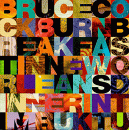
Love this album.
* This is a line from from Bruce Cockburn‘s song “When You Give It Away”, from his 1999 album Breakfast in New Orleans, Dinner in Timbuktu. Bruce is mighty, but this post isn’t about him. It’s all about me, folks. (Well, and maybe them, and her, and all of us, and maybe even you.)
I should know by now.
(I do know, as through an angry glass, darkly.)
I should know by now that vehicles on Dalian streets do not yield for pedestrians, but may accelerate around corners or slalom from one lane of traffic to another to get past them. I should know better than to get revved up, but I still do. It happened again yesterday, though I didn’t shout and flail. (Progress!?)
I should know by now that my freshman class’s leader wouldn’t really understand my directions, though he said, “Got it!” I should have known that he would go upstairs to ask the school administrators for an empty classroom, rather than just doing the quick walkabout I’d recommended to find a spot for a writing class that we’d had to re-schedule. (I knew they wouldn’t help him, since he was a mere student, and they likely wouldn’t have had any better answer for me. Such requests are, no matter how banal, always “very difficult”.) By the time I arrived, just barely at the time we’d agreed on, some of the group had dispersed because there were “no rooms available”. Yes, well, except for the one on the first floor, the one on the second, and the one on the third. I didn’t go any higher.
I shouldn’t have been surprised to learn, later that day, that our Canada-bound sophomore students are required to pay a 6500-yuan “service/counselling fee” to get their visas. That’s about a thousand bucks. That’s about two months’ rent for our well-above-average apartment. My surge of head-shaking disgust was surely redundant. I shouldn’t have been surprised, either, that the kids seemed entirely resigned about it.
I should know better than to have let my temper rise at dinner last night, too. He was only 20-something, and yes, he had too much to say, and he talked right over the friend to his right and was sublimely uninterested in hearing from the two women at our table. Four bottles of beer in an hour didn’t help him much, come to think of it, and I do have a son-of-an-alcholic’s distaste for those who find loud courage in a bottle. It’s true, also, that most of our students and young Chinese friends assume that Canada is paradise and that our lives are far more fortunate than theirs – which, in most ways, is nothing but true.
But he got so aggressive in bemoaning how hard it was to find a wife, how little he had learned in seven years of university, his not knowing how to do his job, how difficult it was, how long it would take him to save for a house so long as he turned down his well-off daddy’s standing offer to buy him one or two (which would, according to Chinese custom, make his wife-hunt much easier, sad to say). By the time he launched into you don’t know, you’re from Canada, everything is easy for you, I should have known it was time to bid a polite good night, but this spoiled prince-ling had hit a whole bunch of a cheek-chewing Canadian’s buttons. He probably doesn’t think a lot differently than many young men I know here, but he was rude and insistent enough that he got both barrels. I don’t like to be so salty and direct, and I wish I’d been able to do it without so much heat, but enough was enough and maybe I was burnt by a long day of learning what I ought to already know. We had spoken earlier of the value of directness, and maybe he learned something, too. We parted civilly, all of us, with mutual congratulations for frank discussion and the importance of seeing for ourselves, but I was still muttering to myself as I got ready for bed. I slept long.
I knew this wouldn’t be easy. There is so much education to be had! (Trouble with nations, trouble with relations / Where you gonna go for some illumination? / Too much to carry, too much to let go / Time goes fast, learning goes slow…*) As we approach the end of four years living and teaching in China, I know who the real student is. (Imagine: I complained a little in our first year that our living conditions in China were too comfy, that we weren’t really experiencing sufficient hardship to genuinely grow, to contribute usefully to this society. I hope I’m growing. I hope I’m giving something that China can use. But I should’ve known better than to tempt the fates as brazenly as that!) I wasn’t used to thinking of myself as a slow learner1, but I should’ve known that a stubborn idealist and a fiery perfectionist (those would be me) would take some bumps.
1 And, if more evidence were needed, I’m headed for another adventure in old-boy basketball Sunday night, playing students again in the same gym from which I took an unscheduled hospital trip in January. Some guys never learn, and sometimes that ain’t so bad.





